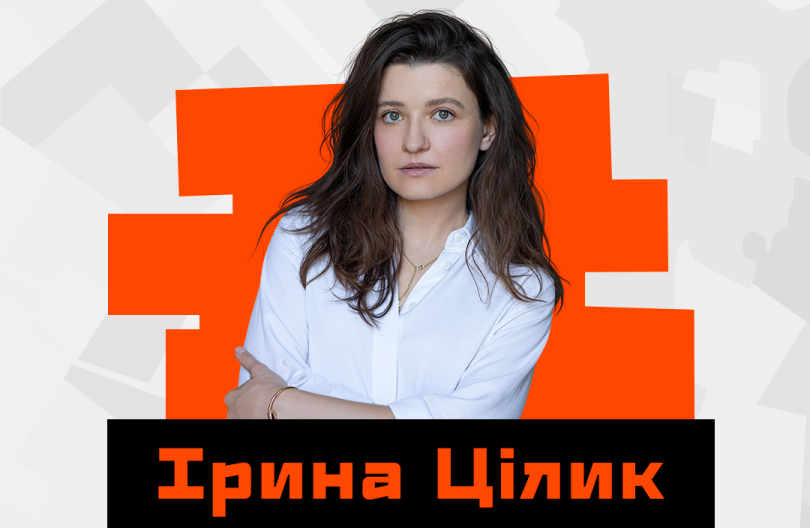„Ma’am, why are you going to Kyiv? There’s a bomb there,“ a Polish taxi driver tells me, who, despite his doubts, tries to give me the fastest possible ride from the Warsaw airport to the train station so that I can catch the train home in time.
I am amused by the use of the word ‘bomb’ in the singular form, and I give him a strained smile. Yes, I am used to the question. I’ve recently started going to quite a few literary performances and film presentations abroad. The constant balancing between completely dissimilar dimensions sharpens some angles and exposes contrasts. All the repetitive, tactless, cautious, or even casual questions made in passing trigger my emotions and compel me to ask myself: How do I feel about this? Why, for example, am I so upset by the question of who I left my son with in Kyiv? Am I taking accountability for my decisions? And what brings me back to Kyiv despite its frequent rocket attacks, power outages, water shortages, and mobile network disruptions?
„My home is there,“ I say, but immediately stop short of a sudden sense of guilt. Having a place to call home is a luxury these days, as too many Ukrainians have been left without one, forced to move to distant and foreign locations. Those people learned to rebuild their nests where they were thrown by circumstance, and most importantly, they learned to cope with the depressing trauma of losing their homes. All this may sound too fatalistic because, in the end, most of us can adapt to anything. Like a mantra, I often repeat to myself that home is not a box with windows but what we carry inside us, what no enemies can take away from us. Despite all this, I find myself feeling sad because for many people, a home is a place of emotional attachment, a collection of countless physical possessions that hold immense personal significance.At first glance, it may seem like replacing lost possessions is a simple matter and that our health and well-being are the most important things. However, only those who have never had to leave behind an entire world of memories and belongings can make such a claim.
Since the start of the Russian war against Ukraine, I have had the opportunity to meet Ukrainians in various European countries. These encounters are always intense and, at times, emotional. I have an intense yearning to connect with those who, through their familiarity and shared experiences, bring a bit of home with them. This is especially true for those who became refugees. They are eager to ask questions, share their stories, embrace one another tightly, cry, laugh with other Ukrainians, and even more so with those who have recently arrived „from back home.“
I was deeply moved by the people I encountered. The woman with dark, sorrowful eyes told me she already had my book at home in Kharkiv and wondered if she would ever see her library again. I hugged a small, bright woman’s thin frame as if playing the piano. Although her husband was being held captive by the Russians and her beautiful home in the center of Mariupol was reduced to rubble, leaving her with nowhere to return, she still radiated a warm smile. And a young girl, with tears in her eyes, said that for the first time since leaving Ukraine in February, she felt a sense of shared understanding with those she met during our meeting with Ukrainian writers. So many stories, eyes shining with tears, shattered dreams, endless fatigue, and a feverish search for a sense of belonging among strangers. And, surprisingly, a great deal of guilt.
It’s a strange thing–have you ever noticed how we all seem to unconsciously apologize to one another without actually saying the words? An acquaintance once told me, „It’s a cycle of guilt.“ Those who have left Ukraine experience a sense of regret toward those who stayed behind. Those who remain at home, but are not in the military, feel a sense of shame toward the military personnel. Those stationed in safer areas are filled with a sense of guilt toward those on the front lines. Meanwhile, only the dead are free from any guilt or shame.
Any psychotherapist will tell you how damaging this sense of guilt can be, especially when there’s no justifiable reason to feel this way. We all have different life experiences, pain thresholds, and emotional reactions. What makes one person tough hurts another or shatters their spirit. So let’s be more understanding and compassionate with each other. We don’t know the whole story behind every person’s life, just the surface details. Let’s treat each other with warmth so the buildup of pain, struggles, and unspoken screams can be reduced. It’s too easy to unintentionally hurt someone with a thoughtless comment, question, or look. So take a deep breath, count to three, and don’t ask, no, don’t ask me why I chose to stay in Kyiv with my son during the war.
„You don’t need to return to Ukraine,“ warns a taxi driver in another European city. „You’re a mother with a child; stay here in Europe where it’s safe.“ This instantly ignites my anger, my eyes become bloodshot, and I am ready to retort with harsh words. But I take a deep breath and count to three, which allows me to calm down. During this pause, the taxi driver continues his monologue. I soon discover that he is Georgian and his family is fighting against Russia in Ukraine. „I would be there now, too,“ he says with a sigh, „but I am the last one to carry our surname.“ His brother died in Ukraine while protecting my home. „Can I give you a hug?“ I ask. It’s a good thing I counted to three. We all know so little about each other.
Translated by Yulia Lyubka and Kate Tsurkan











